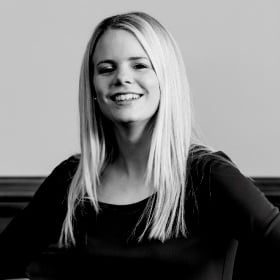I recently attended the 'Mind and Its Potential' conference in Sydney (which IECL were proud to be a supporting partner of) and the resounding message I took away from the event was "When you change your mind, you change your life."
The conference context was set by Ruth Ostrow (columnist for The Australian newspaper, amongst other interesting things). ‘Mind and Its Potential’ celebrates the huge advancements in neuroplasticity research in the last decade, blending a mix of the East and West, science and tradition. Ruth shared her personal story as a journalist in a rapidly changing industry. She told us how at a time when dinosaurs like her were losing their jobs, she went back to university, used her brain and got her Master’s degree in multimedia, documentary making and on-line journalism. This helped her to reinvent herself and embrace social media, multimedia and blogging with a passion.
What evolved throughout the conference was a range of diverse speakers with inspiring stories and science on the power of the mind. Here are five of my conference highlights captured on Twitter (for more Tweets search using the hashtag #MIP15):
The benefits of decluttering are physical, mental and financial. But how can we learn to declutter? https://t.co/spHkKMklW2 #MIP15
— Happy & Well (@happynwell) October 27, 2015
Too much monotone can be boring. Use colour. #MIP15 #mindmapping used by 250 million people @Tony_Buzan pic.twitter.com/37xFNqFURV
— JJ (Jeannette James) (@7Mrsjames) October 26, 2015
You can do things on serotonin versus adrenaline #MIP15 @happynwell #mindfulenergy #happiness
— Dani Matthews (@matthews_dani) October 26, 2015
The standout session in my opinion was ‘Access your creative genius’ by Dr Amantha Imber, Head Inventiologist (what a title!) at Inventium, an innovation consultancy. Amantha was quirky, real and relevant. Inventium collaborates with organisations including CBA, Google and Disney on science based innovation versus luck. Here are her three take-away tips which were cemented with text, a visual image and a physical action (which definitely helped me to recall them!).
1) Crush Assumptions
Amantha stated that assumptions are a creativity killer which fence in our thinking. She shared a practical activity to try: first list your assumptions, then think "what if the opposite was true?" Examples include:
- Apple crushing the assumption that a phone had to have 12 digit buttons.
- Volvo challenging the idea that airbags have to be inside the car (they have launched an external airbag to protect pedestrians).
- Struggling theatres introducing free 'tweet seats' to promote their shows.
2) Put Yourself in Someone Else's Shoes
Amantha talked about different perspectives and thinking from the angle of someone completely different to you. Examples include:
- CBA thinking like Apple and not a bank with their new merchant technology.
- The Extra Mile thinking like an airline versus a charity. They ask people to donate frequent flyer miles instead of money to help people visit terminally ill relatives.
- The Marriott Hotel thinking like a gamer to attract Gen Y employees by creating a game to run the hotel restaurant.
3) Decision Fatigue
Amantha asked the audience when we make most of our important decisions and shared the notion of 'Decision Fatigue' popularised by the New York Times. In short, simple terms, the more decisions you make in a day the worse they come....so "Never make big decisions after lunch!" Examples shared:
- The National Academy of Sciences published a research study examining the factors that impact whether or not a judge approves a criminal for parole. Most notable was the time of day that a judge made their final decision. At the beginning of the day, a judge was likely to give a favourable ruling about 65 percent of the time, and this then decreased throughout the day.
- President Obama famously only buys grey and navy suits to save precious decision making time and keep his focus on running the country.
All in all, it was great food for thought in a fascinating field which keeps evolving!



